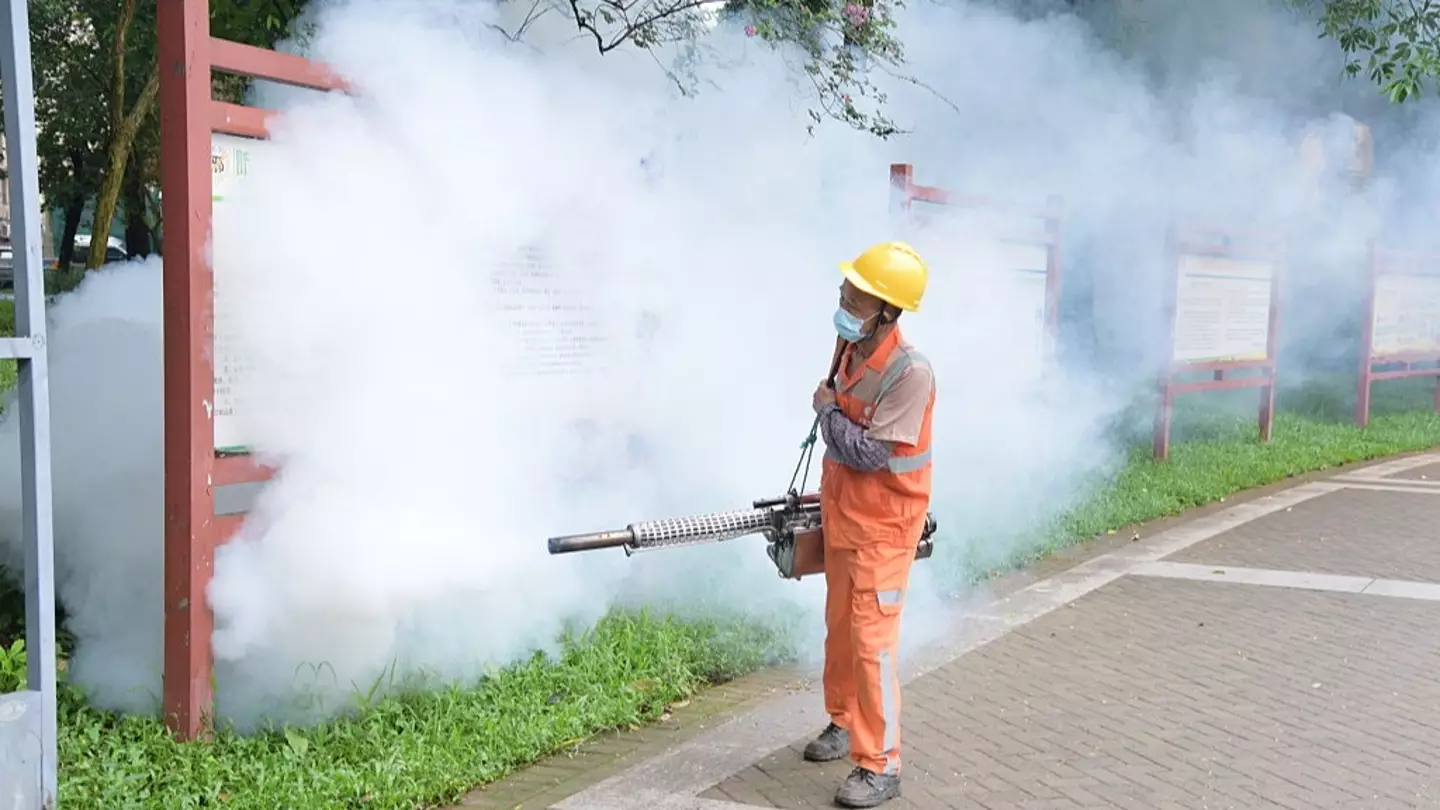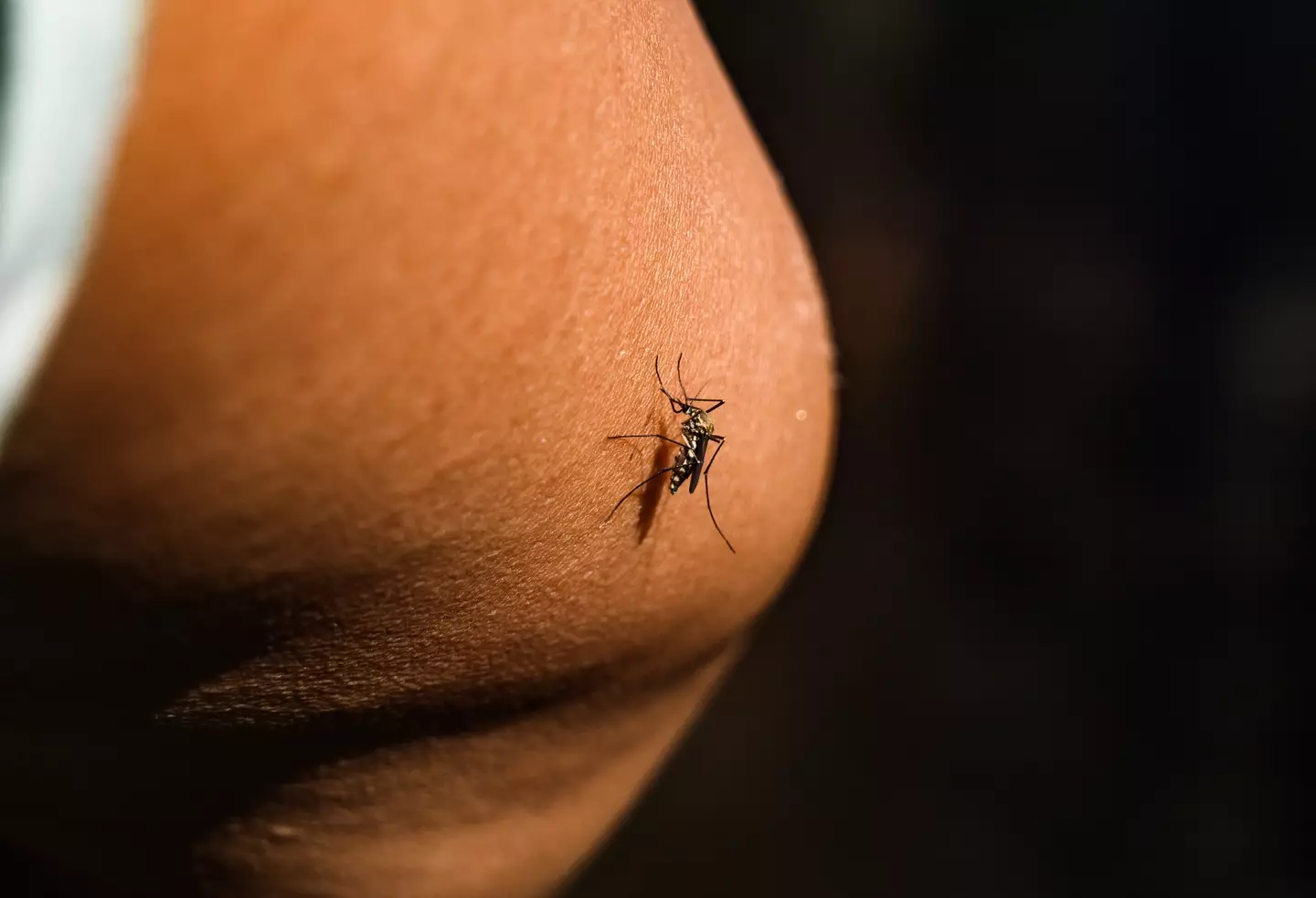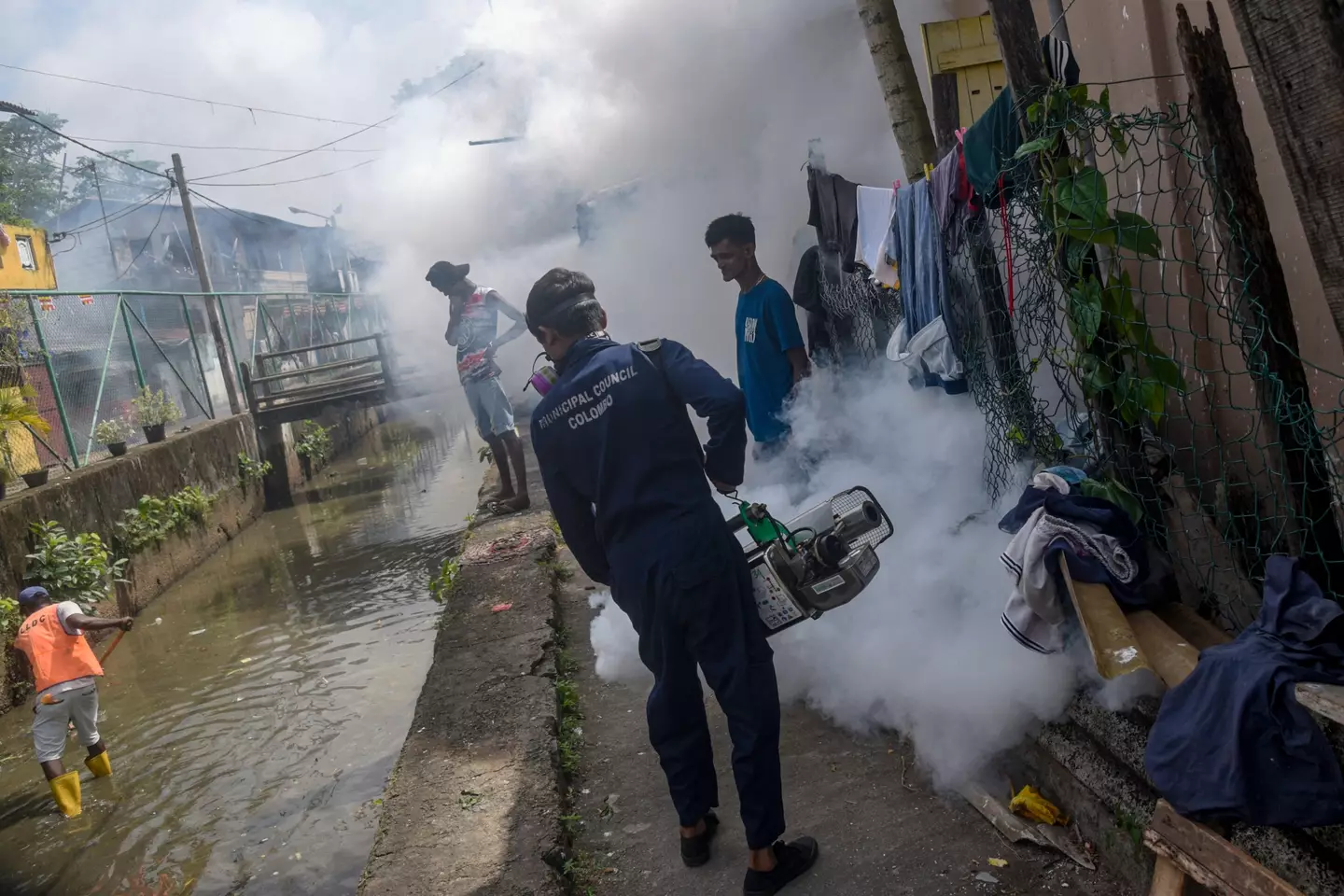
The UK government has issued advice to Brits amid an outbreak of Chikungunya virus in China.
The East Asian nation has vowed to take 'forceful and decisive measures' - similar to those seen during the coronavirus pandemic - to stop the spread of the illness.
Over 7,000 cases have been reported across the Guangdong province since July and the city of Foshan is said to have been hit the hardest.
Another dozen cities in the area have also recorded infections in recent weeks, and almost 3,000 cases of Chikungunya virus were recorded in the last seven days alone.
Advert
There are rising fears that the virus could start to spread further afield after a 12-year-boy from Hong Kong, who travelled to Foshan last month, developed symptoms earlier this week.
Luckily, Chikungunya virus isn't spread as easily as other nasty illnesses, as it can only be passed on by the bite of an infected mosquito.
The Centres for Disease Control and Prevention (CDC) says that 'the best way to prevent Chikungunya is to protect yourself from mosquito bites', however, some travellers should consider vaccination too.
Sufferers usually start to experience symptoms within a week of being bitten and most people typically complain of having a fever and 'severe' joint pain.

According to the World Health Organisation (WHO), the joint pain can often be 'debilitating and usually lasts for a few days' - however, it can last for weeks, months or even years for some unlucky people.
Other common symptoms include swelling around your joints, muscle pain, headaches, nausea, fatigue and a rash.
The WHO explains that although the majority of people make a full recovery from the infection, patients 'at extremes of the age spectrum' are prone to experiencing complications.
So it's extra important for the elderly, babies and vulnerable people to avoid contracting Chikungunya virus.
UK government advice on Chikungunya virus
The UK government issued some advice for Brits last month (16 July) about the Chikungunya virus, while warning that that the likelihood of it 'spreading in mainland Europe is high' due to 'importations from infected travellers returning from endemic countries'.
However, it adds: "There is currently no Chikungunya transmission in the UK, with all identified cases being related to travel and having been imported into the UK."
So, we're in the clear for now.
Still, the UK's Joint Committee on Vaccination and Immunisation (JCVI) has urged Brits heading abroad to consider getting a vaccine to protect them against Chikungunya virus, as well as abiding by 'standard bite avoidance measures'.
This includes covering up exposed skin with long sleeves and full-length trousers, using mosquito repellant with 50 percent DEET, and sleeping under mosquito nets if sleeping outdoors.
It explains that people who are travelling to regions with active outbreaks or travellers who frequent regions with transmissions in the past five years would be best off getting a jab.
The JCVI said there are two vaccines - one of which is suitable for those aged 12 years old and over and another which can be offered to immunocompetent individuals aged 18 to 59 years old - currently licensed for use in the UK.
So if you fall into one of the vulnerable categories, speak to your GP about which vaccine - IXCHIQ or Vimkunya - would better suit you.
Unfortunately, there are no antiviral treatments for the virus, so the only thing a person can do if they get struck down by it is to take pain medication.
Stay safe out there, folks!
How is China responding to Chikungunya virus?

China is implementing 'decisive and forceful measures' to contain the outbreak, which includes forcing patients in Foshan to stay in hospital with mosquito nets around their beds.
They are only allowed to leave when they test negative for the virus or when seven days has passed since their initial infection.
Officials are also taking an interesting approach to trying to get rid of infected mosquitos, as they intend to release huge 'elephant mosquitoes' to counteract them.
These will eat the smaller Chikungunya-spreading bugs while 'an army of mosquito-eating fish' were released into lakes around Foshan to combat the infected insects who are lounging in stagnant water.
Several neighbouring cities have even gone as far as introducing a 14-day quarantine for anyone travelling from Foshan, but these have since been revoked, the BBC reports.
Topics: China, Health, UK News, World News, Chikungunya virus